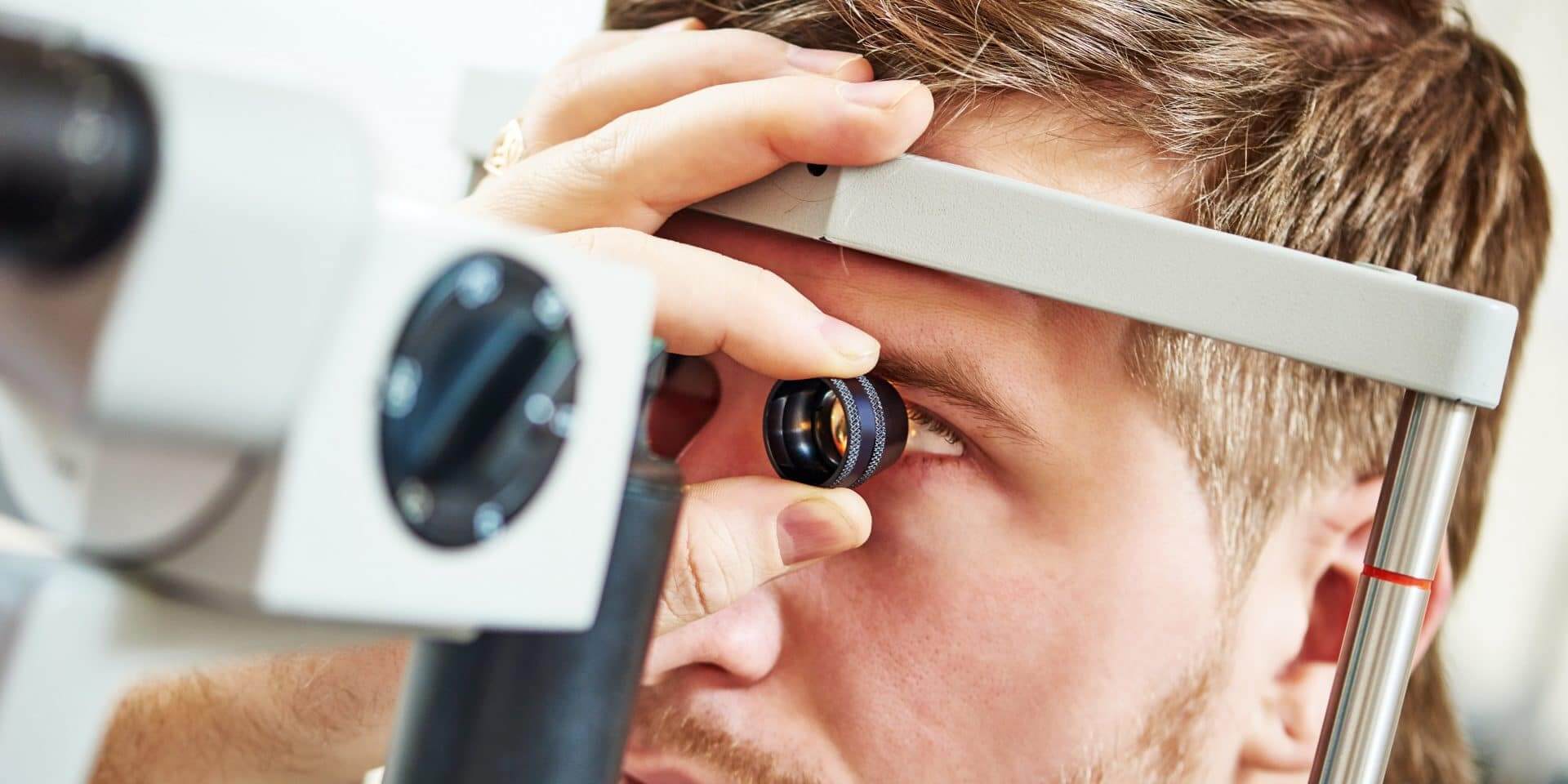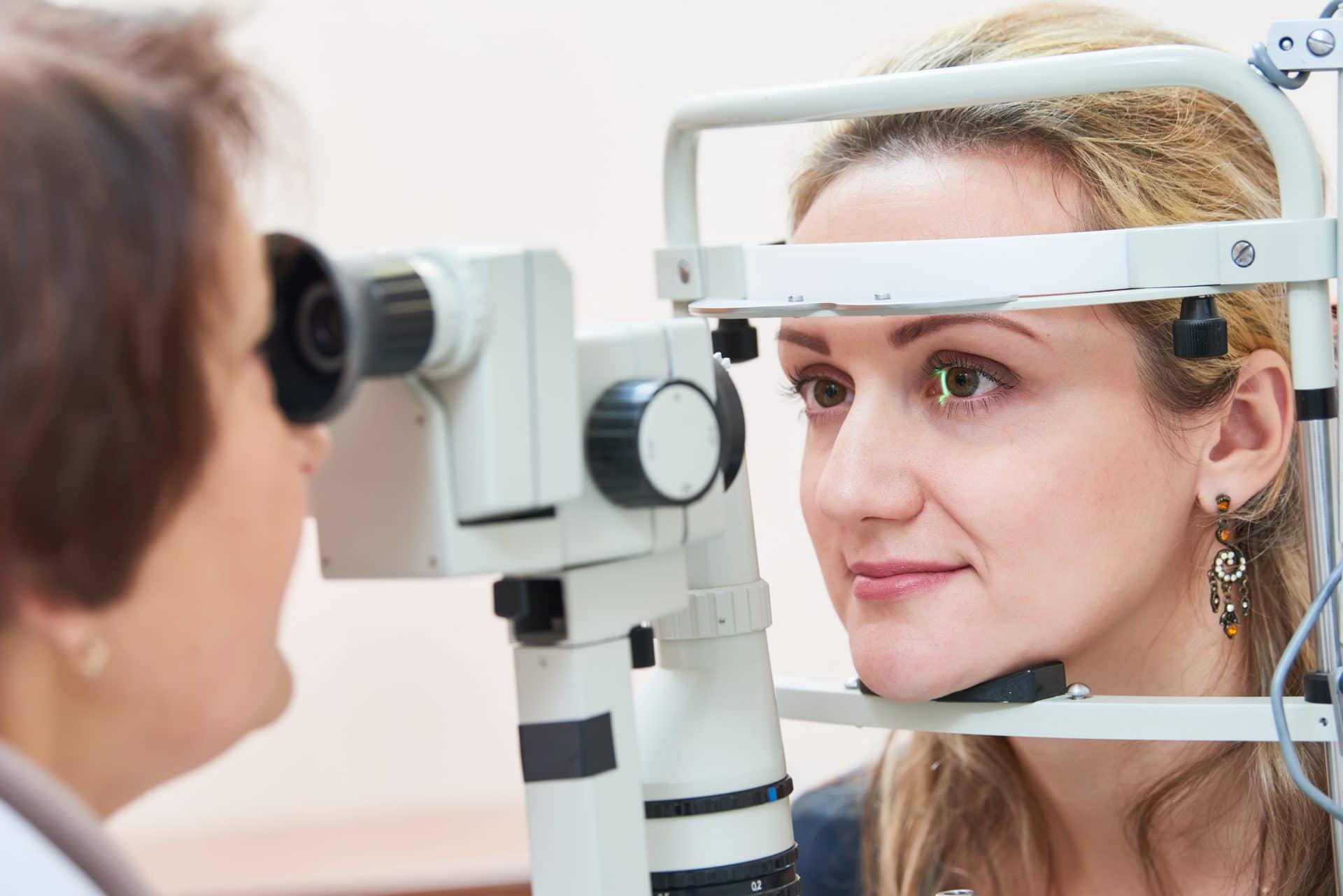Did you know nearly one person in every 25 in the UK has diabetes? It can take time to get your diabetes under control, but the results are worth it – otherwise, you could set yourself up for a host of complications. Diabetes can take a toll on nearly every organ in your body, and that includes your eyes.
The Most Common Eye Problems Associated With Diabetes

If you have diabetes, it’s really important that you have regular eye tests and diabetic retinal screenings. Although not everyone who has diabetes develops an eye condition, diabetes can affect your eyes in a number of ways.
Blurred Vision
Don’t buy new glasses as soon as you notice that your vision looks blurry, as it could mean a problem caused by high blood sugar. The changes in blood sugar levels caused by diabetes can affect the lens inside your eye, especially when your diabetes isn’t controlled. These changes can result in your vision blurring, which can change from day to day, depending on your blood sugar levels.
To correct it, you need to get your blood sugar back into the target range.
Cataracts

Diabetes can cause the lens in your eye to become cloudy. This condition is known as a cataract. This happens because the high sugar levels found in the fluid around the lens causes the lens to swell with more water than usual. The lens then focuses light differently on the retina at the back of the eye, and this may cause your spectacle prescription to change as your cataract develops.
If you have diabetes, you’re more likely to develop a cataract, and at an earlier age too, when compared to people without diabetes.
Glaucoma
Glaucoma occurs when there is a gradual increase in the normal fluid pressure inside the eyes. The increased pressure can damage the optic nerve, causing vision loss. Unfortunately, with glaucoma, there are no symptoms until there is a loss of peripheral vision.
If glaucoma is left untreated, the result can be complete vision loss. The longer someone has had diabetes, the chances of developing glaucoma increase – however the risk for glaucoma in everyone grows with age.
Diabetic Retinopathy

The most serious eye condition associated with diabetes is diabetic retinopathy, and it’s when diabetes affects the network of blood vessels supplying the retina at the back of the eye. Diabetes can cause the blood vessels to become blocked, to leak or to grow incorrectly.
There are different types of diabetic retinopathy, and it can be worse for some people than for others, depending on the severity of the changes to the blood vessels. The different types of diabetic retinopathy include:
- Background Retinopathy – This doesn’t usually affect your sight, but your eyes will need to be monitored carefully to make sure your retinopathy doesn’t become worse.
- Proliferative Retinopathy – If background retinopathy gets worse, many of the retinal blood vessels become damaged or blocked. When these changes affect a large area of your retina, blood supply to the retina is reduced. The body tries to fix this by growing new blood vessels on the retinal surface or into the vitreous gel. Unfortunately, these new vessels are weak and they bleed very easily, which may affect your vision.
- Diabetic Maculopathy – When your macula (the central part of your retina) is affected by your retinopathy, you are said to have diabetic maculopathy. This means that your central vision, which is required for seeing fine detail and colour, will be blurred.
The good news is that studies show that regular eye exams and timely treatment of these kinds of problems could prevent up to 90% of diabetes-related blindness.
A full yearly checkup can help find problems early when they’re easier to treat – and that alone could save your vision.
Want To Find Out If You're Suitable?
If you're wondering whether laser eye treatment is the right choice for you, there are some key things to consider...

